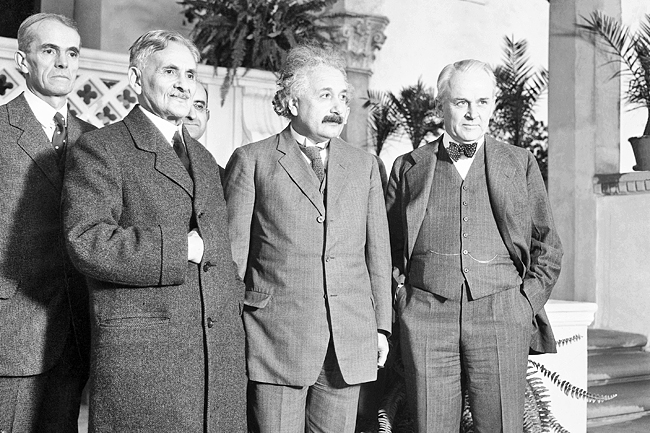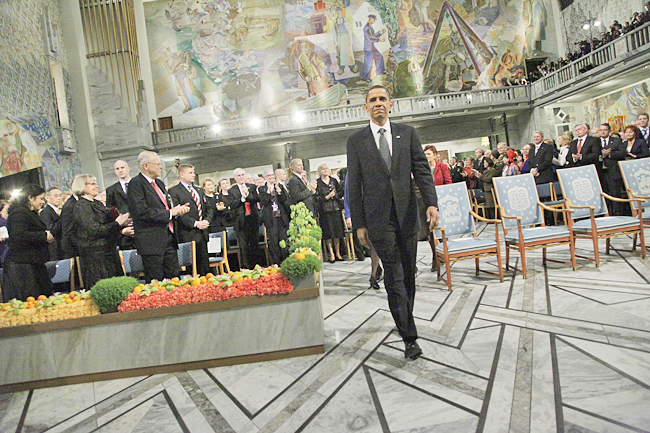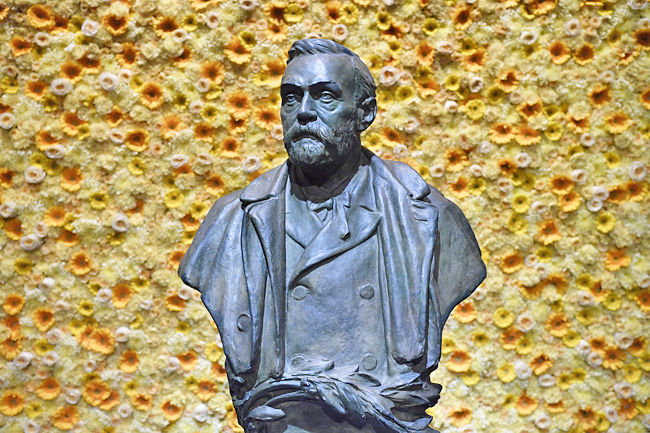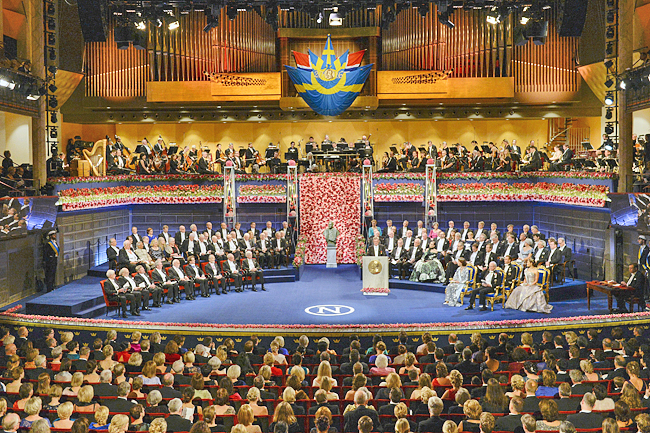AP – Fall has arrived in Scandinavia, which means Nobel Prize season is here.
The start of October is when the Nobel committees get together in Stockholm and Oslo to announce the winners of the yearly awards.
First up, as usual, is the Nobel Prize in medicine or physiology, which will be announced today by a panel of judges at the Karolinska Institute in the Swedish capital. The prizes in physics, chemistry, literature, peace and economics will follow, with one announcement every weekday until October 9.
Here are some things to know about the Nobel Prizes:
AN IDEA MORE POWERFUL THAN DYNAMITE
The Nobel Prizes were created by Alfred Nobel, a 19th-century businessman and chemist from Sweden.
He held more than 300 patents but his claim to fame before the Nobel Prizes was having invented dynamite by mixing nitroglycerine with a compound that made the explosive more stable.
Dynamite soon became popular in construction and mining as well as in the weapons industry. It made Nobel a very rich man.
Perhaps it also made him think about his legacy, because toward the end of his life he decided to use his vast fortune to fund annual prizes to those who, during the preceding year, have conferred the greatest benefit to humankind.
The first Nobel Prizes were presented in 1901, five years after his death. In 1968, a sixth prize was created, for economics, by Sweden’s central bank.
Though Nobel purists stress that the economics prize is technically not a Nobel Prize, it’s always presented together with the others.




PEACE IN NORWAY
For reasons that are not entirely clear, Nobel decided that the peace prize should be awarded in Norway and the other prizes in Sweden. Nobel historians suspect Sweden’s history of militarism may have been a factor.
During Nobel’s lifetime, Sweden and Norway were in a union, which the Norwegians reluctantly joined after the Swedes invaded their country in 1814. It’s possible that Nobel thought Norway would be a more suitable location for a prize meant to encourage fellowship among nations.
To this day, the Nobel Peace Prize is a completely Norwegian affair, with the winners selected and announced by a Norwegian committee.
The peace prize even has its own ceremony in the Norwegian capital of Oslo on December 10 – the anniversary of Nobel’s death – while the other prizes are presented in Stockholm.
WHAT’S POLITICS GOT TO DO WITH IT?
The Nobel Prizes project an aura of being above the political fray, focused solely on the benefit of humanity.
But the peace and literature awards, in particular, are sometimes accused of being politicised.
Critics question whether winners are selected because their work is truly outstanding or because it aligns with the political preferences of the judges.
The scrutiny can get intense for high-profile awards, such as in 2009, when President Barack Obama won the peace prize less than a year after taking office.
The Norwegian Nobel Committee is an independent body that insists its only mission is to carry out the will of Alfred Nobel.
However, it does have links to Norway’s political system. The five members are appointed by the Norwegian Parliament, so the panel’s composition reflects the power balance in the legislature.
To avoid the perception that the prizes are influenced by Norway’s political leaders, sitting members of the Norwegian government or Parliament are barred from serving on the committee.
Even so, the panel isn’t always viewed as independent by foreign countries. When imprisoned Chinese dissident Liu Xiaobo won the peace prize in 2010, Beijing responded by freezing trade talks with Norway. It took years for Norway-China relations to be restored.
GOLD AND GLORY
One reason the prizes are so famous is they come with a generous amount of cash.
The Nobel Foundation, which administers the awards, raised the prize money by 10 per cent this year to SEK11 million (about USD1 million). In addition to the money, the winners receive an 18-karat gold medal and diploma when they collect their Nobel Prizes at the award ceremonies in December.
Most winners are proud and humbled by joining the pantheon of Nobel laureates, from Albert Einstein to Mother Teresa. But two winners refused their Nobel Prizes: French writer Jean-Paul Sartre, who turned down the literature prize in 1964, and Vietnamese politician Le Duc Tho, who declined the peace prize that he was meant to share with United States diplomat Henry Kissinger in 1973.
Several others were not able to receive their awards because they were imprisoned, such as Belarusian pro-democracy activist Ales Bialiatski, who shared last year’s peace prize with human rights groups in Ukraine and Russia.
LACK OF DIVERSITY
Historically, the vast majority of Nobel Prize winners have been white men. Though that’s started to change, there is still little diversity among Nobel winners, particularly in the science categories.
To date, 60 women have won Nobel Prizes, including 25 in the scientific categories.
Only four women have won the Nobel Prize in physics and just two have won the economics prize.
In the early days of the Nobel Prizes, the lack of diversity among winners could be explained by the lack of diversity among scientists in general.
But today critics say the judges need to do a better job at highlighting discoveries made by women and scientists outside Europe and North America.
The prize committees say their decisions are based on scientific merit, not gender, nationality or race.
However, they are not deaf to the criticism. Five years ago, the head of the Royal Swedish Academy of Sciences said it had started to ask nominating bodies to make sure they don’t overlook women or people of other ethnicities or nationalities in their nominations. – Karl Ritter





